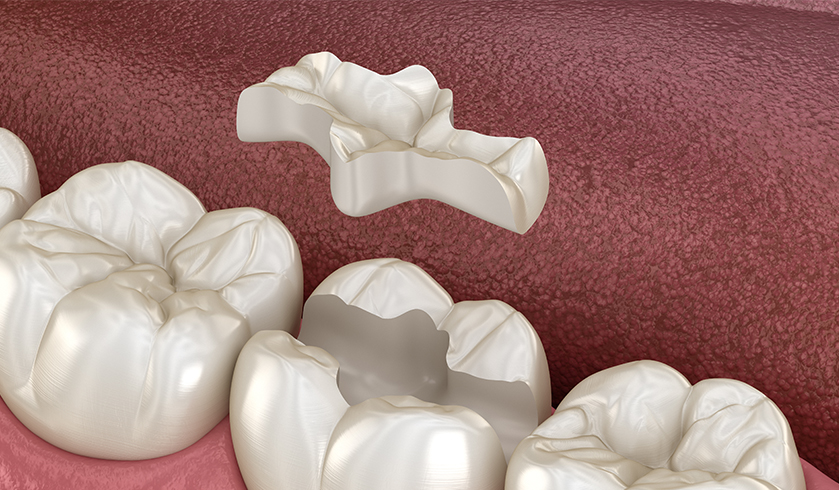Mercury-free dentistry is a cosmetic dental solution for healthier and more aesthetically pleasing fillings, inlays and onlays.
Why is Mercury-Free Dentistry recommended?
Before the development of dental composite materials for tooth restorations, amalgam alloys containing mercury, silver and copper were primarily used in dental fillings. The benefits of metal fillings are that they are a low-cost option, strong, long-lasting and easily used to restore teeth. Metal fillings may still be available today across the world, but they are not considered the safest or most cosmetically pleasing option in dental care.
Part of the drive for mercury-free fillings is to reduce incidents of toxicity caused by mercury and to prevent environmental pollution. Metal fillings are also noticeable when smiling or talking. Other teeth restoration materials and treatments are now available for healthier dental fillings, which provide a more natural look. Many dentists recommend replacing metal fillings with dental composite fillings to ensure patient safety.

Who will benefit from Mercury-Free Dentistry?
Individuals with broken teeth, tooth cavities, discoloured teeth and in need of tooth surface restoration are able to have treatment with mercury-free fillings, inlays and onlays. Dental composite materials are proven in terms of safety, dental functionality and enhancing smiles.
What is dental composite and how is it used in dentistry?
White dental composite material is made of resin-based substances, which are combined with inorganic fillers such as ceramic. These materials are stable and resistant, with a natural white colour that can be matched to a patient’s tooth colour. Used in a range of applications, dental composite fillings are durable, bond to tooth tissue with ease and preserve tooth structure. The two main uses of the dental composite are direct dental composite and indirect dental composite.
Direct dental composite restorations are completed during treatment for tooth reshaping, partial crowns and veneers. Self-curing through light activation allows these dental restorations to be dense, strong and fast-acting.
Indirect dental composite restorations are cured externally of bespoke patient measurements before oral application. Their use is extensive, ranging from cavity and gap filling to tooth restorations, crowns and bridges.

What are white inlays and onlays?
If patients have a broken tooth or teeth that are damaged due to decay or gum disease, the area can be cleaned of infection and the tooth structure is then prepared for the placement of a white composite inlay. Inlays form part of the natural tooth, strengthening the existing tooth structure. They can be white, tooth coloured or gold.
White dental composite onlays are used to restore the biting surface of the teeth and are applied directly to the tooth surface, which rebuilds tooth structure for stronger functionality. Many clinics also use WAND technology in the application of fillings, inlays and onlays.
